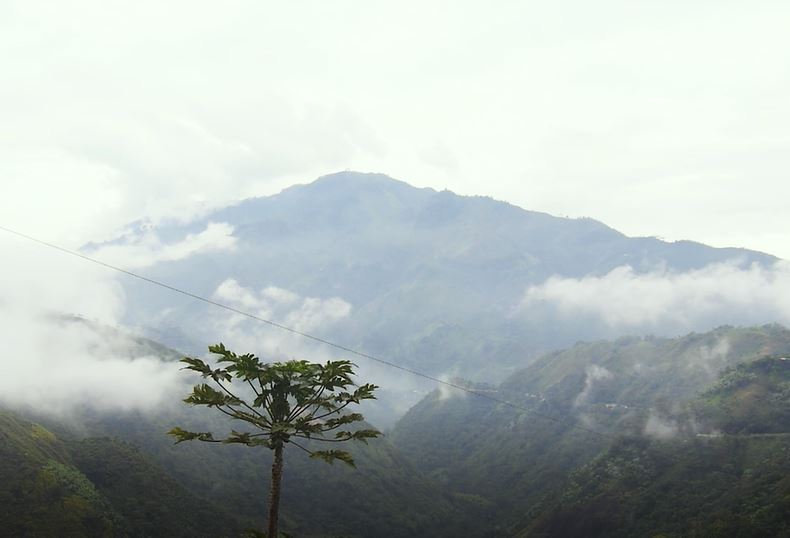
Results of the CAPAZ call to support research projects in 2020-2021

CAPAZ is pleased to announce the ten research projects selected to be supported and developed in the 2020-2021 period. The call’s results were positive; despite the difficult circumstances associated with the current COVID-19 health emergency, a total of 46 (forty-six) applications were received, among which the following ten were selected.
The projects chosen were grouped according to the CAPAZ thematic areas: peacebuilding practices; peace, conflicts and territorial reconfigurations; and Transitional Justice and Human Rights.
Results of the call to support research projects 2020-2021:
Thematic axis: Peacebuilding practices:
1) “Comunidades resilientes constructoras de paz, en las veredas de Puerto Torres, Portal La Mono y Agua Bonita del Departamento del Caquetá” (Resilient peacebuilding communities, in the villages of Puerto Torres, Portal La Mono and Agua Bonita in the Department of Caquetá). Universidad de Caldas; Universidad de la Amazonía, KU Eichstätt-Ingolstadt. Sandra Vallejo González (Universidad de Caldas).
2) “Aportes del audiovisual a los procesos de recuperación psicosocial y protección de salud mental en víctimas del conflicto armado” (Audio-visual contributions to the psychosocial recovery and mental health protection of victims of the armed conflict). Universidad de Ibagué; Pontificia Universidad Javeriana; Albert-Ludwigs-Universität Freiburg; Universidad Minuto de Dios; Universidad Nacional de Tres de Febrero UNTREF (Argentina). Sandra Patiño Ospina (Universidad de Ibagué).
3) “Contarte: narrativas transmedia para la memoria histórica y la construcción de paz” (Contarte: transmedia narratives for historical memory and peacebuilding). Freie Universität Berlin; Goethe University Frankfurt; Université Lumière Lyon 2; Pontificia Universidad Javeriana; Universidad Nacional de Colombia (Bogotá and Amazonía campuses), Universidad de San Buenaventura. John Jairo Cárdenas Herrera (Universidad de San Buenaventura), Juan Carlos Villamizar (Universidad Nacional de Colombia).
4) “Trenzando memorias. Pensamiento político y construcción de paz de mujeres afrodescendientes, indígenas y campesinas en el departamento del Cauca” (Weaving memories. Political thought and peacebuilding of Afro descendant, indigenous and peasant women in the department of Cauca). Universidad del Cauca, Goethe University Frankfurt. Axel Rojas Martínez (Universidad del Cauca).
Thematic axis: Peace, conflict and territorial reconfiguration:
5) “Comunidades rurales fronterizas y la defensa de la autonomía territorial en el posacuerdo colombiano: Los casos de Puerto Asís (Putumayo) y Tumaco (Nariño)” [Rural border communities and the defence of territorial autonomy in the Colombian post-accord period: The cases of Puerto Asís (Putumayo) and Tumaco (Nariño)]. Universidad Nacional de Colombia, Peace Research Institute Frankfurt (PRIF); Community Council Consejo Mayor del Consejo Comunitario Alto Mira y Frontera (Tumaco); Community Action Board Junta de Acción comunal (Vereda Angosturas, Puerto Asís). Luis Gabriel Salas (Universidad Nacional), Jonas Wolff (Peace Research Institute Frankfurt (PRIF).
6) “Julián Conrado, de rebelde insurgente a gobernante: Una experiencia de reincorporación política de las FARC-EP” (Julián Conrado, from insurgent rebel to ruler: an experience of political reincorporation of the FARC-EP). Freie Universität Berlin; Universidad del Rosario; Wageningen University. Julián Cortés Urquijo (Wageningen University).
Thematic axis: Transitional Justice and Human Rights:
7) “Participación de las víctimas en la definición de trabajos, obras y actividades con contenido reparador-restaurador (TOAR) y sanciones propias ante la JEP” (Victims’ participation in the definition of reparative-restorative works, projects and activities (TOAR) and their own sanctions before the JEP). Pontificia Universidad Javeriana, Cali (PUJC); Georg-August-Universität Göttingen; Mesa Técnica, Institucional y Social de Diálogo para apoyar la Participación de las Víctimas en el caso 005 ante la JEP (Institutional and social dialogue to support the participation of victims in case 005 before the JEP). Manuel Ramiro Muñoz, Katerine Alejandra Duque (IEI – Pontificia Universidad Javeriana, Cali).
8) “Violencia masiva contra pueblos indígenas en el Cauca: entre el genocidio y los crímenes de lesa humanidad” (Mass violence against indigenous peoples in Cauca: between genocide and crimes against humanity). Pontificia Universidad Javeriana; Philipps-Universität Marburg; Legal representative before the JEP Consejo Regional Indígena del Cauca – CRIC. Gustavo Cote Barco, Lorena Vega Dueñas (Pontificia Universidad Javeriana).
9) “Recomendaciones con enfoque de género para el informe final de la Comisión de Esclarecimiento de la Verdad en Colombia” (Recommendations with a gender perspective for the final report of the Commission for the Clarification of the Truth in Colombia). Universidad de los Andes; Justus-Liebig-Universität Gießen; Red de Mujeres del Caribe (Caribbean Women’s Network). Diana Gómez Correal (Universidad de los Andes).
Thematic axis: Peacebuilding practices and transitional justice and human rights:
10) “Un aporte al esclarecimiento de la verdad: memorias de las mujeres indígenas excombatientes en el Caribe colombiano” (A contribution to the clarification of the truth: memories of indigenous women ex-combatants in the Colombian Caribbean). Erfurt University; Universidad del Rosario; Mesa étnica ETCR Tierra Grata. Ángela Santamaría (Universidad del Rosario).
Download: Results 2020-2021 (.pdf, in Spanish)
CAPAZ highlights the academic quality and thematic and disciplinary diversity of the proposals received, as well as the motivation to present the proposals and develop them, considering the current health emergency. In view of the difficulties and challenges of undertaking research at such a time, CAPAZ has opened up the possibility of adapting the projects to current circumstances, both in terms of methodology and work programmes. The results of the call also recognise the efforts made by CAPAZ to promote research and publicise the role of academia in peacebuilding in Colombia.
(NW Text: Juliette Vargas, Claudia Maya. English version: Tiziana Laudato)



